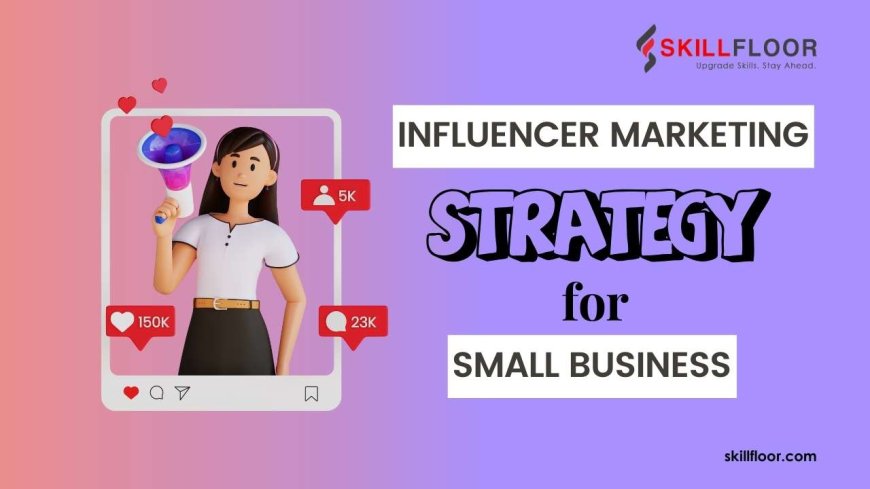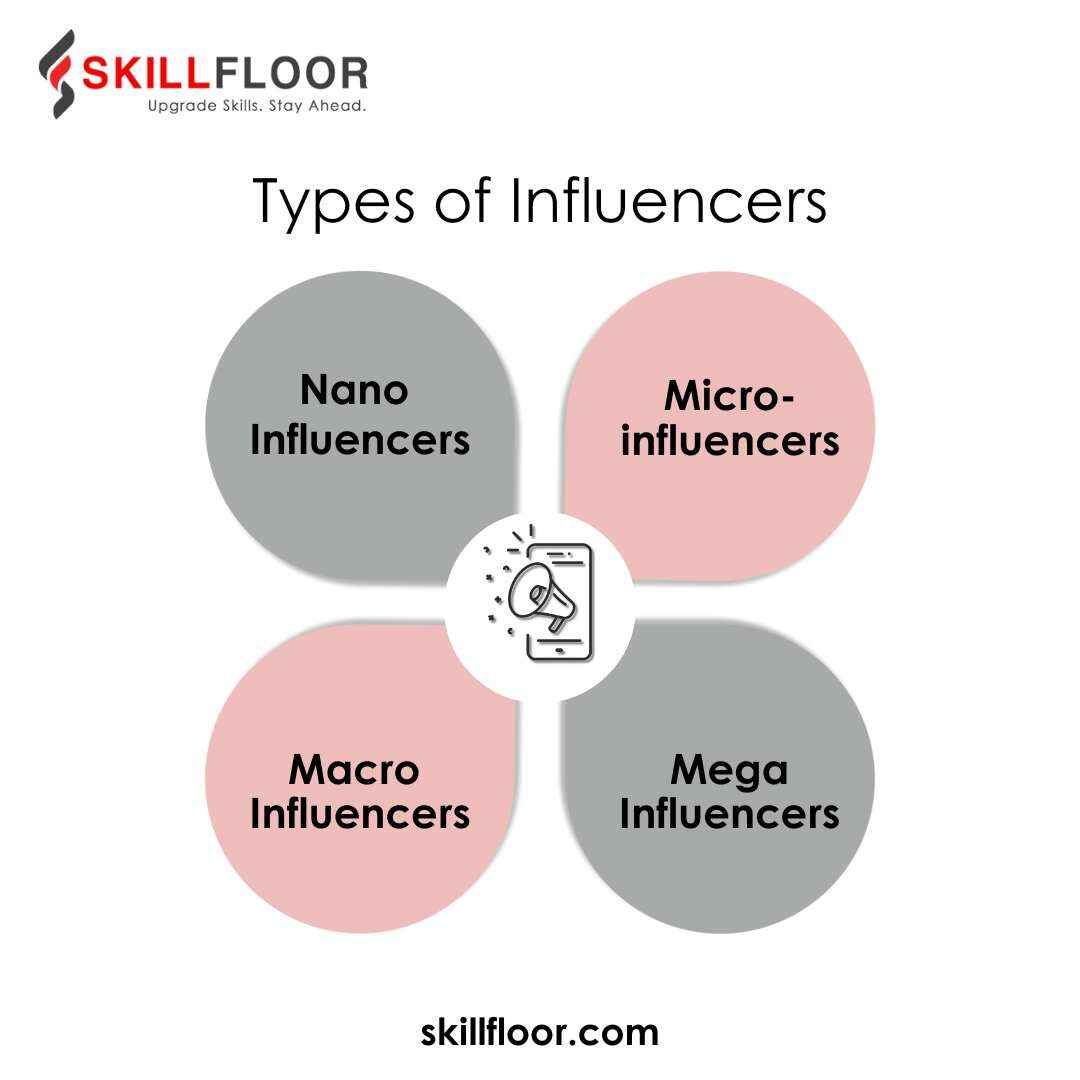Influencer Marketing Strategies for Small Businesses
Learn how small businesses can use influencer marketing to grow their brand and increase sales. Simple, effective strategies to get started.

Small businesses can reach their target audience through trustworthy voices by utilizing influencer marketing, which is an excellent strategy. Without investing a lot of money, brands may increase their visibility and image by working with social media influencers. Influencer marketing strategies for small businesses have the potential to significantly impact small businesses by making them stand out in a congested market. You can develop captivating social media campaigns that genuinely engage your audience when you collaborate with social media influencers. By sharing genuine material that their audience enjoys, these influencers facilitate the development of trust and engagement for small businesses. Your brand might receive the necessary boost by integrating influencer marketing into your digital marketing efforts. Social media influencers have already built strong relationships with their followers, and your business can benefit from that. This approach not only increases brand awareness but also fosters customer loyalty.
Understanding Influencer Marketing
Influencer marketing is a strategy used by companies to collaborate with people who have a large social media following. By distributing goods or services to their audience, these influencers aid in brand promotion. It's a method of connecting with prospective clients through accounts they follow and trust, which gives marketing a more genuine and intimate feel. This tactic makes use of the influencer's connection with their followers to increase engagement and brand recognition.
Influencers come in different types based on their follower count and impact:

Nano Influencers: With 1,000–10,000 followers, these are known as nano influencers. Because of how involved and devoted their fans are, they are excellent for specialized markets.
Micro-influencers: Considered authorities in their field, these influencers have between 10,000 and 100,000 followers. They are ideal for focusing on particular audiences because their followers respect their viewpoints.
Macro Influencers: People with a following of one million to one hundred thousand follow them. They are perfect for larger campaigns because they provide a nice mix of reach and engagement.
Mega Influencers: Usually celebrities, these are well-known figures with more than a million followers. Although they have a vast reach, working with them can be more costly.
Benefits of influencer marketing for small businesses
Influencer marketing has several benefits for small businesses: It is a wise decision for small businesses looking to expand their audience and visibility because of these advantages.
Cost-effective: Influencer marketing is frequently less expensive than traditional advertising, especially when working with fewer influencers. You don't need to invest a lot to achieve good outcomes.
Targeted Reach: Influencers who are passionate about particular subjects have a following. Small enterprises may now reach the correct audience thanks to this. For instance, to reach those who are concerned about their health, a fitness influencer and a brand can collaborate.
Brand Trust: People believe the advice given by influencers. An influencer's recommendation of your product feels like a personal recommendation, which immediately establishes your brand's credibility.
Setting Clear Goals and Objectives
To get the most out of influencer marketing, first decide what you want to achieve:
- Brand Awareness: Make your brand more noticeable.
- Engagement: Engage your audience by encouraging them to respond to your material.
- Sales: Encourage others to buy your goods or services.
- Next, set SMART goals to guide your efforts:
- Specific: Specify precise, in-depth objectives. "Grow Instagram followers by 20%," for instance.
- Measurable: Ascertain your ability to monitor advancement. As an illustration, "Get 500 new followers."
- Achievable: Make sure your goals are doable. Take the phrase "Grow followers by 20% in three months," for instance.
- Relevant: Verify that your objectives and corporate goals are in line. As an example, "Boost social media engagement to improve brand awareness."
- Time-bound: Give your objectives a due date. Say, "Achieve this within three months," as an example.
Identifying the Right Influencers
Think about the following important factors when choosing influencers for your marketing campaigns:
- Relevance: Verify that the influencer's content fits with the niche and core principles of your company.
- Contact: To determine the number of individuals you might be able to contact, consider the size of their audience.
- Engagement: Observe the degree to which their fans like, comment on, and share their social media posts.
- Authenticity: Select influencers who seem reliable and accessible and who connect with their audience.
You can use a variety of tools and platforms to find the right influencers. Look them up on social media platforms such as YouTube, Instagram, and TikTok. To engage with them, use influencer marketplaces like Influencer Hero, Influencity, AspireIQ, and Upfluence. Look through relevant hashtags to find influencers in your industry. HypeAuditor and Social Blade are two tools that can be used to analyze their performance. To reach people who are more likely to be interested in your items, make sure the influencer's audience resembles your target market. This will increase the effectiveness and significance of your marketing campaigns.
Building Relationships with Influencers
When approaching influencers professionally, start with a friendly introduction and explain why you admire their work. Clearly outline your proposal, including what you’re offering and what you hope to achieve together. Be specific about how you think this collaboration will benefit both parties. Make sure to keep your message concise and respectful, showing that you value their time and creativity. Always be open to their input and willing to discuss details to find a mutually beneficial arrangement.
Developing Effective Campaigns
You can think about a variety of influencer campaign types. Influencers provide their honest views on what you sell in product reviews. Giveaways boost engagement by encouraging influencers to hold contests where their followers can win your products. Collaborating with others can involve producing creative content like blog entries or videos that creatively promote your brand. Every kind of campaign has unique advantages and can assist you in achieving your marketing objectives.
Tips for Long-Term Success
Building long-term relationships with influencers needs mutual respect and regular contact. Begin by showing appreciation for their efforts and providing just compensation. Stay in contact regularly, rather than only when you're in need. When their content fits with your brand, share it and lend your support to their endeavors. In order to build a relationship that eventually helps both sides, be receptive to criticism and adaptable with your ideas. This strategy builds trust and produces genuine and effective teamwork.
In conclusion, influencer marketing helps small businesses reach their target audience and build brand awareness cost-effectively. By partnering with relevant influencers and setting clear goals, businesses can create engaging campaigns that build trust and drive growth. Building long-term relationships with influencers ensures authentic collaborations, making your marketing efforts more effective and impactful.



























































